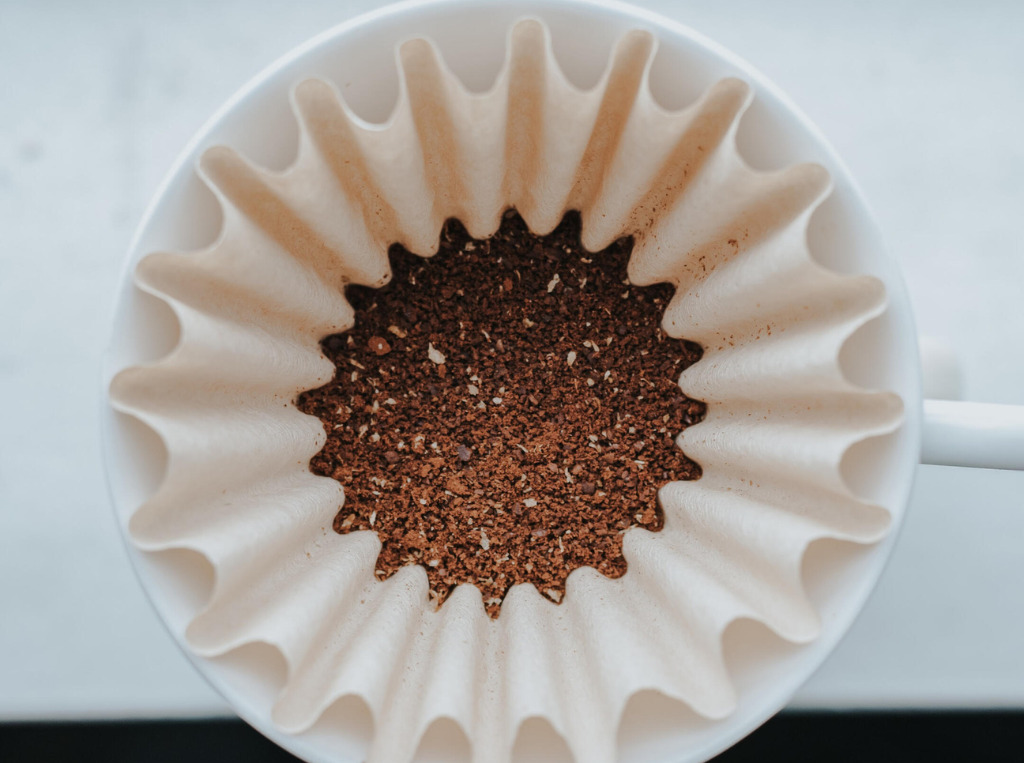6 Mins Read
The link between coffee and climate change is well-documented. The industry has been hit with low harvests, uneven yields and uncertainty due to extreme temperatures and changing weather conditions. Coffee is among the foods with the highest greenhouse gas emissions, and increased demand is now leading to deforestation and human rights violations. One touted solution is beanless coffee.
Just like plant-based milk and cell-based meat, molecular, beanless coffee is a drink comprised of alternative ingredients, made to resemble your conventional cup of joe. With climate change a real threat to coffee – 60% of all coffee species face the threat of extinction, and 50% of all coffee-growing land may not be arable by 2100 – it makes for an intriguing innovation.
Here are seven businesses selling beanless coffee:
Atomo
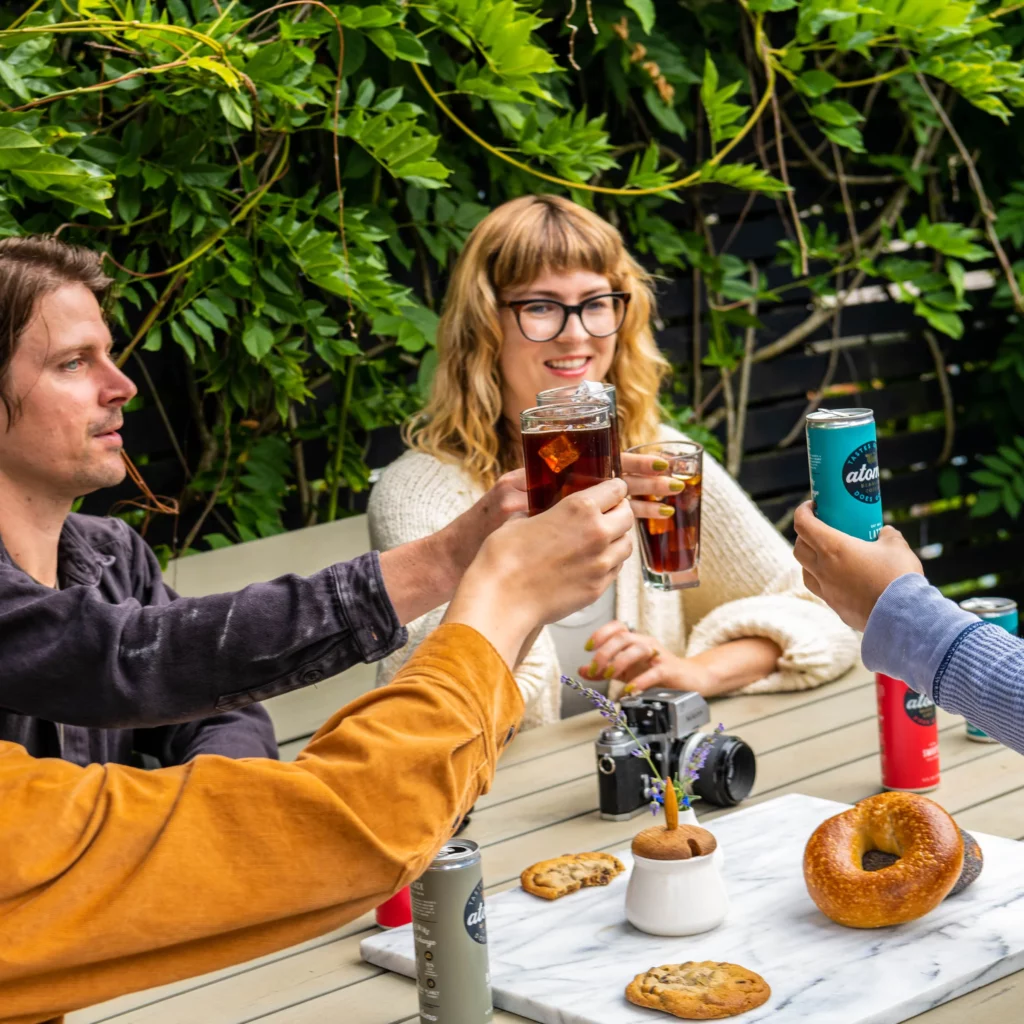
Probably the brand most ubiquitous with molecular coffee, Seattle-based Atomo was founded in 2019 by Andy Kleitsch and Jarret Stopforth. The startup began making its ‘lab-grown’ coffee with upcycled ingredients like watermelon seeds and sunflower seed husks and stems. Now, the focus has shifted to upcycled date pits, which are blended with grapes, chicory root and tea-derived caffeine to form a coffee-like drink.
Atomo’s current lineup contains three molecular cold brew cans: Classic Black, Ultra Smooth, and Oat Milk Latte. The first two have an identical ingredient list, but different roast profiles, while the latter resulted from a collaboration with London-based oat milk brand Minor Figures. The startup claims its lab-grown coffee uses 94% less water and emits 93% fewer carbon emissions than conventional cold brew.
Its website lists a medium roast and its decaf counterpart that can be sold as espresso grounds. The brand is also developing a hot-brewed ground coffee alternative that can be made the same way as regular coffee.
Atomo also addresses concerns about the livelihoods of coffee farmers over a switch to beanless coffee. “A transition of that scale is very unlikely, considering the global consumption of coffee is two billion cups a day,” the website reads. “Our goal is not to displace global coffee farmers… Coffee consumption worldwide is growing at a rapid pace forcing coffee farmers to increase production. To increase production along with changing climate conditions is forcing them to expand their growing areas which leads to deforestation and increased water consumption.”
Minus Coffee
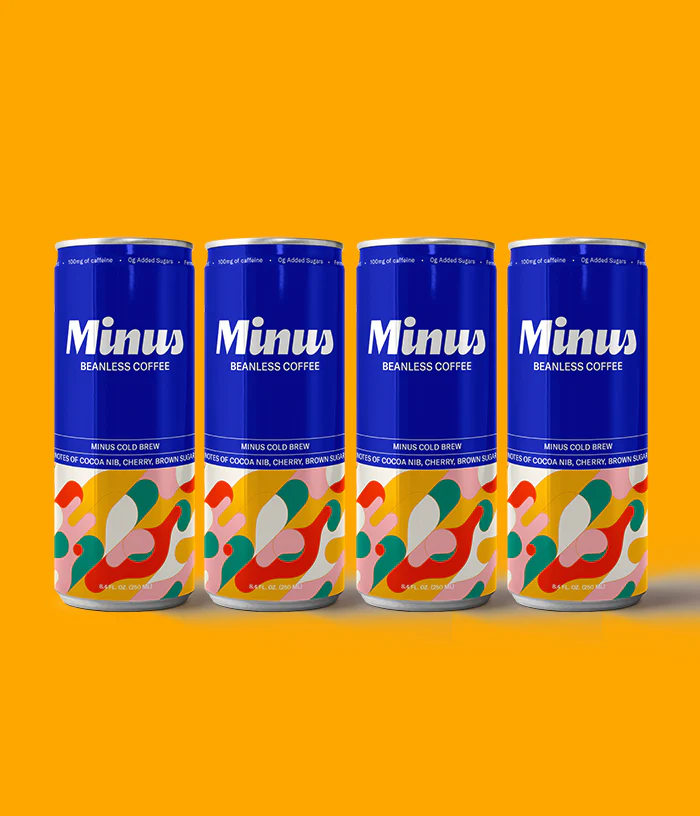
Founded in 2020, San Francisco-based Minus Coffee began its journey as Compound Foods. In 2021, led by founder Maricel Saenz, it secured a $4.5M investment to ferment its sustainable coffee.
Minus’ beanless cold brew comprises seven principal upcycled ingredients: date seeds, chicory, sunflower seeds, carob, lentils, grape seeds and millet malt. All these are first roasted, and then fermented to create an extract that boasts “bold, orange peel acidity and an undercurrent of sweet cherry and dark chocolate”. The natural caffeine content is extracted from tea leaves.
The finished cold brew has tasting notes of cacao nibs, cherry and brown sugar, with each ingredient creating a complex flavour layer. Each 250ml can retails for $5, using 94% less water and producing 91% fewer greenhouse gas emissions than regular cold brew.
On the subject of farmers, Minus says: “We are partnering with an organisation in Central America that is helping coffee farmers transition to agroforestry systems and crops that are more climate-resilient and revenue-generating for them.”
Northern Wonder
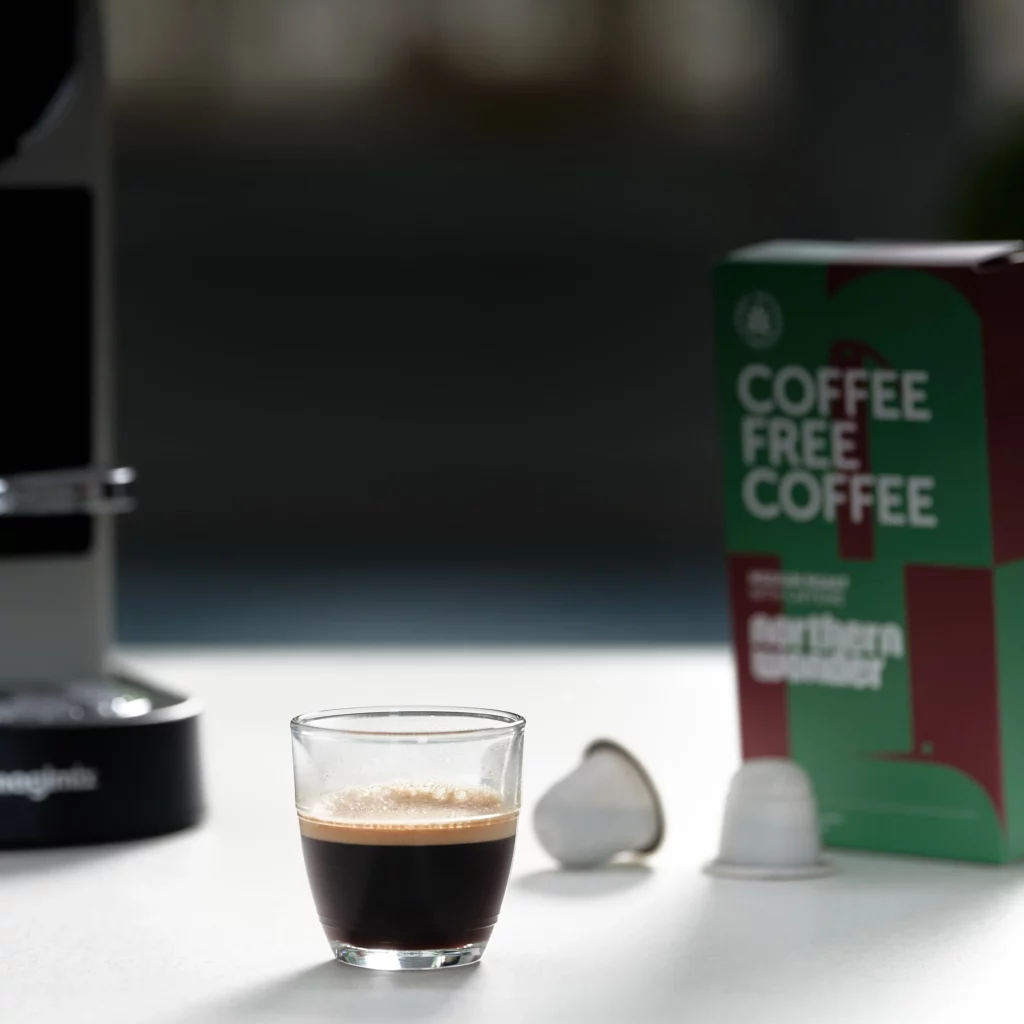
Moving away from cold brew, Dutch food tech brand Northern Wonder – founded in 2021 by David Klingen, Bas Franse, Andreas Giel and Onno Franse – makes Coffee-Free Coffee capsules and filter blends.
Its medium-roast ground filter blend can be prepared like traditional filter coffee, while its beanless coffee pods are Nespresso-compatible. Both are available in caffeinated and decaf versions. The brand is also developing espresso-style grounds, cold brew and – what is likely to create a huge buzz – whole beans.
The filter blend contains a roasted blend of lupin beans, barley, rye, chickpeas and chicory, while the capsules contain roasted lupin, barley, rye, fig, chickpea and chicory. Both are complemented with blackcurrant and a synthetic caffeine source (the pods also have carob). The capsules are made from plant-based composites.
The company conducted its first Life Cycle Assessment this year, which found a 76% reduction in carbon emissions, as well as the use of 95% less water and 66% less land.
Northern Wonder also alludes to the demand potential for beanless coffee when it comes to displacing farmers: “There is such good demand for coffee that existing coffee growers will be able to continue their work. We only try to combat deforestation by limiting (a bit) the need of further expansion of land used for coffee growing. Less demand for coffee limits the role coffee will play as a driver of deforestation.”
Prefer
Founded in 2022 by neuroscientist Jake Berber and chemist-turned-food scientist Tan Ding Jie, Singapore-based Prefer makes bean-free ground coffee. It uses a novel fermentation process that converts food byproducts from beer, bread and tofu manufacturing into key coffee aroma molecules.
The brand says that although it has started with coffee, its fermentation technology has the potential to create more affordable and sustainable flavours. The end goal is to create alternatives to threatened natural flavours like cacao, vanilla and citrus.
Voyage Foods
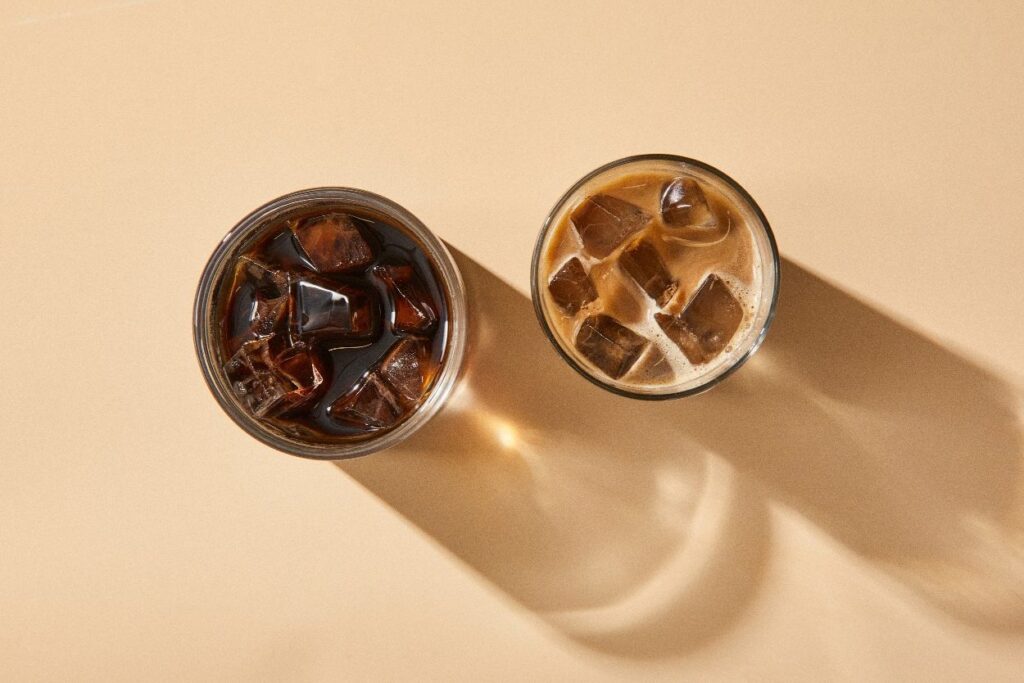
Californian food tech startup Voyage Foods makes ethical pantry staples like nut-free nut butters and cacao-less chocolate spread. It has received $41.7M in funding to date, and is now working on a beanless coffee offering.
The details are currently under wraps, but going by the popularity of its other alternatives, it seems like this product will have a bright future. Voyage Foods says the eventual coffee can be drunk as is, or with milk.
Zero Coffee
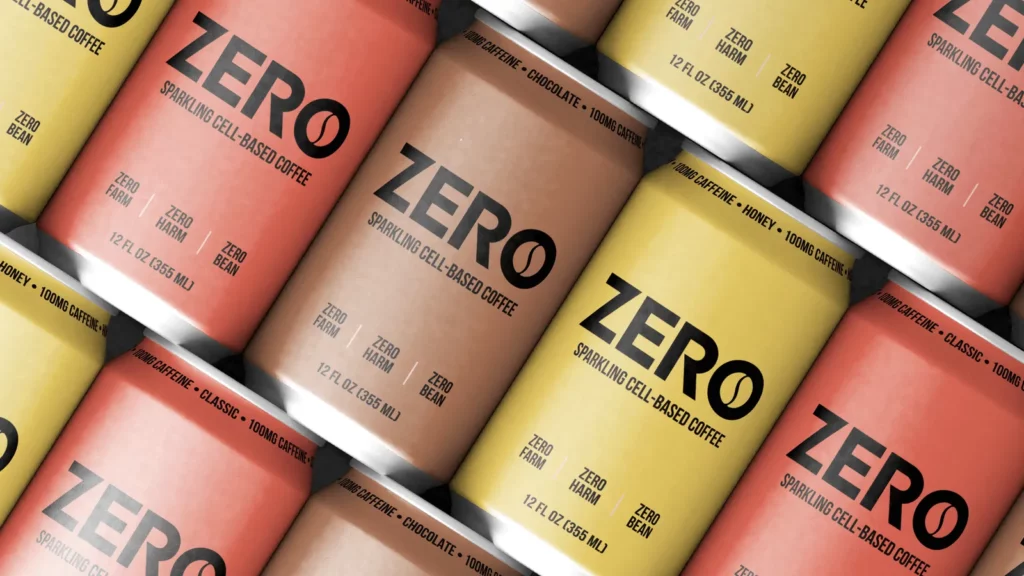
Marketing its product as ‘cell-based coffee’, Canadian food tech pioneer Cult Food Science will soon launch Zero Coffee, a bean-free sparkling beverage.
The brand says its canned coffee eliminates the unsustainable land use and deforestation associated with conventional coffee farming. It is also launching Free Candy, a performance gummy with cell-based collagen.
“The products that bring us so much joy — an afternoon coffee or sweet snack — so often rely on environmentally harmful ingredients,” said Joshua Errett, Cult Food’s VP of product development. “Cult Foods is providing a sustainable alternative with its Zero Coffee and Free Candy products, making the joy of coffee or candy truly guilt-free.”
Stem
Staying on the theme of cell-based coffee, scientists at Finland’s VTT Technical Research Centre have created coffee from a batch of coffee stem cells produced via cellular agriculture. These enable the researchers to cultivate coffee beans in a bioreactor, which is filled with a nutrient-rich medium, where the plant cells proliferate and grow biomass, which is then roasted.
The research centre said in 2021 that it will take at least four years to make cell-based coffee viable for retail. On this path is Parisian food tech firm Stem, which claims to be the world’s first startup developing mass-produced cell-cultured coffee. It uses coffee byproducts like used grounds and upcycled cherry pulp (cascara), putting them under a harmonious upcycling loop.
“We begin the journey with undifferentiated coffee cell materials from selected varieties, propagate them in a liquid suspension using a plant growth media before proceeding to upscale the culture in a bioreactor through a fermentation process,” explains its website. This results in a green coffee powder that is dried and roasted, resulting in a product ready to be extracted via regular brewing methods.

